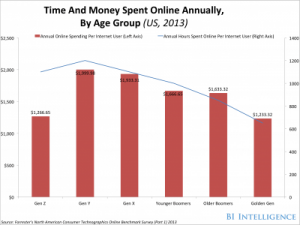According to a recent post by Microsoft’s Colin Masson, in the battle to win customers and differentiate from competitors, manufacturers are embracing a strategy of Intelligent Operations. Companies are using the advantages of digital technology to build intelligence, connectivity and personalization into products, thrilling customers with greater convenience and value. Masson writes: Delivering consistently on brand, sales and services promises entails alignment of both digital customer experiences and digital operations excellence. Everyone in your organization, from sales people and service representatives, to engineers, production/warehouse workers and delivery drivers, need to put the customer first in every decision. Building teams around the customer journey means breaking down the walls of the traditional workplace; helping employees to do their best work with connected technologies; and empowering the front line with direct access to information and tools. This effort to put the customer experience at the center of the manufacturing process implies an expanded role for the CMO. As the voice of the customer within the organization and the role responsible for wrapping the features and capabilities of the manufacturer into a distinctive brand, the CMO can be a leader in this conversation by embracing a holistic approach to data.
- Use data analytics to quantify customer feedback. Customers are talking about your products online: suggesting new features, recommending them to friends, finding new uses that engineers may not have envisioned and, yes, often complaining. Making sense of this feedback requires analytics more sophisticated than simple sentiment analysis. The richest insights can come from combining the unstructured “Big Data” coming from public social platforms, blogs and customer forums with internal CRM, sales and service data that only your business has access to. Information gathered through these methods can help inform product development and rapidly innovate new products to increase customer satisfaction and brand value.
- Use data to target content to the customer journey. Marketers today understand the customer journey is less of the traditional funnel and more of a cycle, where customers express different levels of engagement and intent to purchase as they move to a higher level of awareness about the market. Customers who are undertaking preliminary investigation need to be made aware of your offerings, while customers researching their options are good candidates for richer forms of content marketing. Transaction related offers and discounts have the greatest leverage when customers are ready to buy. Detailed customer data can help marketers understand more precisely where individual customers are in their journey, and enable delivery of the right content at the right time in the right context to convert that interest into sales.
- Bring Intelligent Operations to customer experiences. Masson covers this point well in his post but it’s a point worth repeating: “By focusing on delivering great customer experiences that they will want to share, manufacturers can create sustainable relationships… After effectively selling ‘customerized’ products, great proactive service experiences engender loyalty in customers who then re-engage with the manufacturer when it is time to consider their next purchase.” Digital technologies give manufacturers many new ways to create those experiences, from augmented reality that overlays digital data on physical experiences, to location-aware sensors and beacons that take the guesswork out of shipping and product status. Marketing is frequently a leading adopter of these technologies, and can gain even greater influence by promoting smart use of data pervasively across the organization to tightly integrate product design, service and brand experience.
Manufacturers are using data and digital convergence to create reimagine manufacturing one customer at a time. Marketers are the experts in personalization, customer engagement and aligning brand messaging to brand performance. By advocating for a sophisticated and strategic use of data throughout the organization to drive customer centricity on all these different fronts, the CMO can help lead their manufacturing organizations to a more profitable future.
(236)
Report Post






